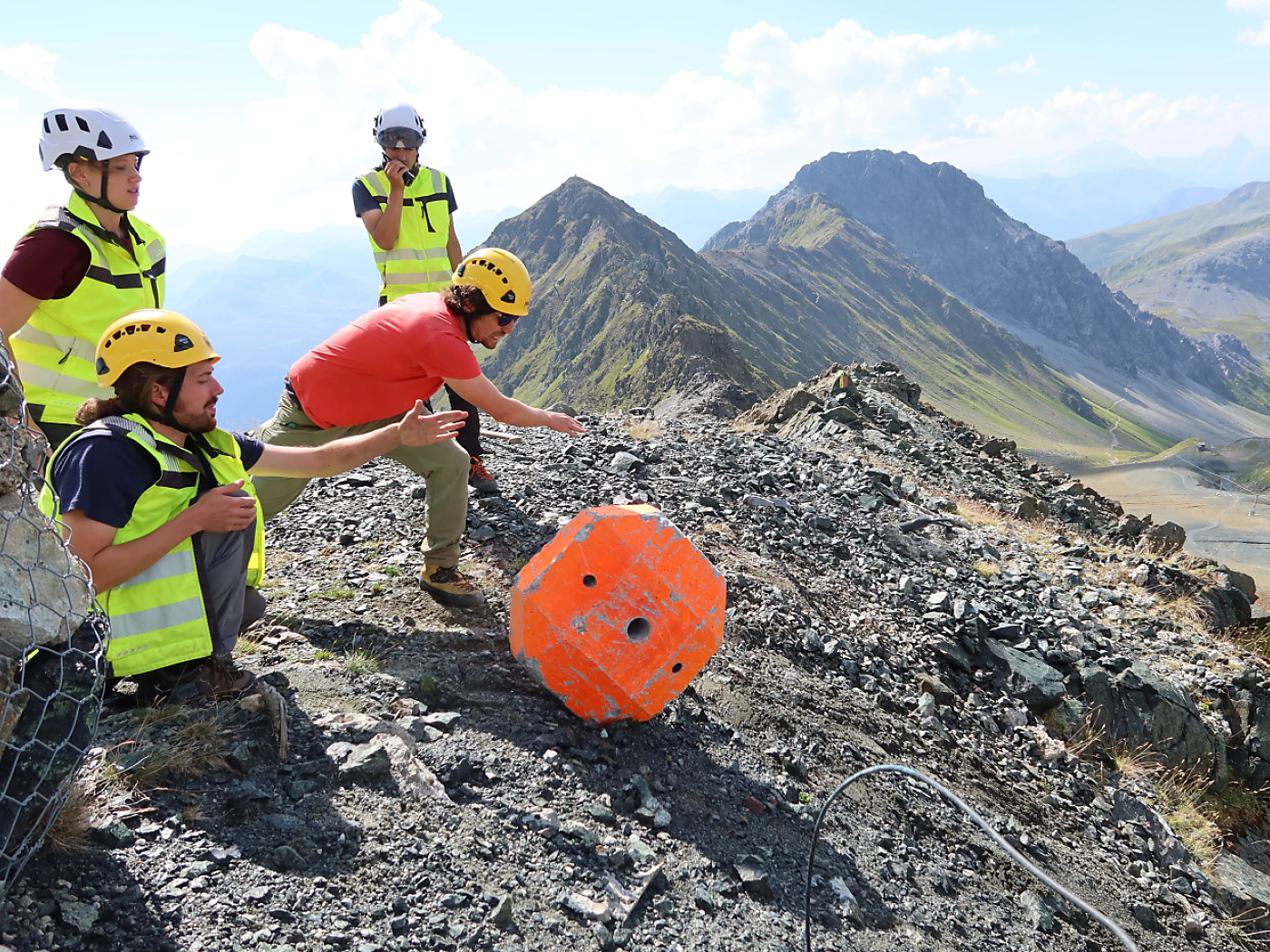
Researchers throw concrete blocks down Swiss mountain

Researchers are rolling huge chunks of concrete down the slope on the Weissfluhjoch near Davos in eastern Switzerland for scientific purposes. They use them to collect data for a computer model that simulates rockfall.
+Get the most important news from Switzerland in your inbox
The model predicts how far a rock will travel down into the valley after it has come loose somewhere, the Davos-based Institute for Snow and Avalanche Research (SLF) said on Thursday.
The computer models are used by authorities and geologists to create hazard maps, among other things. They therefore help to determine where and how buildings can be constructed to ensure protection against rockfall and where protective structures are required for existing infrastructure.
+ The deadliest landslides in Swiss history
With this experiment, the researchers led by SLF rockfall expert Joël Borner want to find out how rocks and boulders fall on rough ground, how they move and how they are deflected by obstacles. Similar tests had previously been carried out on other types of ground.
Weighing up to 200kg
To do this, they equipped the blocks of concrete weighing between 45kg and 200kg with sensors. They use them to measure various data, including the acceleration and rotational speed of the blocks. In addition, a camera records the exact path of the blocks. The blocks were painted a bright orange color to make them easier to see.
The experiments were not without danger, wrote the SLF. After all, the hiking trail from the Strela Pass to the Weissfluhjoch runs along the slope, which is used by people on foot or by mountain bike. A group of volunteers is therefore present during the tests to block the path at short notice.
Translated from German by DeepL/ts
This news story has been written and carefully fact-checked by an external editorial team. At SWI swissinfo.ch we select the most relevant news for an international audience and use automatic translation tools such as DeepL to translate it into English. Providing you with automatically translated news gives us the time to write more in-depth articles.
If you want to know more about how we work, have a look here, if you want to learn more about how we use technology, click here, and if you have feedback on this news story please write to english@swissinfo.ch.

In compliance with the JTI standards
More: SWI swissinfo.ch certified by the Journalism Trust Initiative






























You can find an overview of ongoing debates with our journalists here . Please join us!
If you want to start a conversation about a topic raised in this article or want to report factual errors, email us at english@swissinfo.ch.